
ON 28 APRIL, after three years of intensive preparation, Victor Vescovo finally reached what’s now the deepest-known part of the planet: 10,928m under the ocean in the Pacific. Nestled inside a purpose-built deep-submergence vehicle (DSV) called Limiting Factor, he dived to the bottom of the deepest ocean trench, reaching 16m further than anyone before. The previous record for a solo dive was 10,908m, set by filmmaker and explorer James Cameron in the Deepsea Challenger in 2012.
Victor’s record-breaking dive took him deeper than Mt Everest is high, to a cold, lightless, high-pressure place as inaccessible as outer space. It was the fourth successful leg of his Five Deeps Expedition, which was designed to send a human to the very bottom of each of the world’s five oceans: the Puerto Rico Trench in the Atlantic, South Sandwich Trench in the Southern Ocean, Java Trench in the Indian Ocean, Challenger Deep in the Pacific and Molloy Deep in the Arctic. The latter was the last left to reach at the time of going to press. A fivepart documentary series filmed by Atlantic Productions is due to be shown on the Discovery Channel at the end of this year.
THE DECISION TO embark on the Five Deeps Expedition was made by Victor in 2015 while undertaking The Explorers Grand Slam – climbing the highest mountain on each of the seven continents and skiing to both the north and south poles. After exploring Earth’s highest peaks it seemed natural he should seek its lowest depths. But he’d been mulling over the concept well before that and already knew there was a huge problem: he’d need a submersible craft capable of repeated dives to some of Earth’s most inhospitable places and such a thing didn’t yet exist.
This story is from the September - October 2019 edition of Australian Geographic Magazine.
Start your 7-day Magzter GOLD free trial to access thousands of curated premium stories, and 9,000+ magazines and newspapers.
Already a subscriber ? Sign In
This story is from the September - October 2019 edition of Australian Geographic Magazine.
Start your 7-day Magzter GOLD free trial to access thousands of curated premium stories, and 9,000+ magazines and newspapers.
Already a subscriber? Sign In
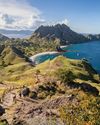
SULAWESI SENSATIONS
There are worlds within worlds and marvels untold waiting to be experienced on Indonesia's remote islands.
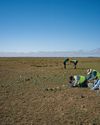
SEARCHING FOR AUSSIE DINOSAURS
Our understanding of where to find ancient life in Australia has been turned on its head by a new appreciation of the country's geology. Now the world is looking to our vast outback as the latest hotspot to locate fossils.
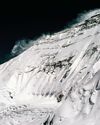
THE HARDEST NIGHT
The first Australian ascent of Mt Everest in 1984 is one of the great feats of mountaineering. Climbed by a small team semi-alpine style, with no bottled oxygen, via the Great (Norton) Couloir, it remains unrepeated 40 years later.
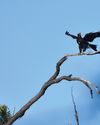
WEDGE-TAILED WONDER
The chance discovery of an eagle nest leads to an extended vigil observing normally hidden behaviours of one of nature's supreme winged marvels.
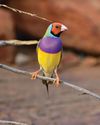
BURDENED BY BEAUTY
Northern Australia's Gouldian finch survives in huge numbers in cages around the world, but its wild population continues to struggle.

A TELESCOPE FOR A GOLDEN AGE
After a stellar 50 years as one of the country's major scientific assets, the AAT continues to play a major role in keeping Australian astronomy on the world stage.

COCKY WHISPERING AT COOMALLO CREEK
This patch of remnant bush on the edge of the West Australian wheatbelt is a place loved by one of Australia's rarest bird species and the man who has studied the site for more than 50 years.

A PIONEERING PAIR
Louisa Atkinson and her mother, Charlotte, were among Australia's earliest authors, and pioneers in women's rights.

THE LONGEST WALK
Lucy Barnard is walking from Argentina to Alaska -the length of the Americas - on an extraordinary journey of endurance and adventure.
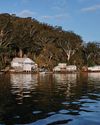
SECLUDED, BUT NOT ALONE
In an era of heightened social isolation, where many of us lead lonely lives, Dangar Island offers the chance to be part of a supportive, connected community.